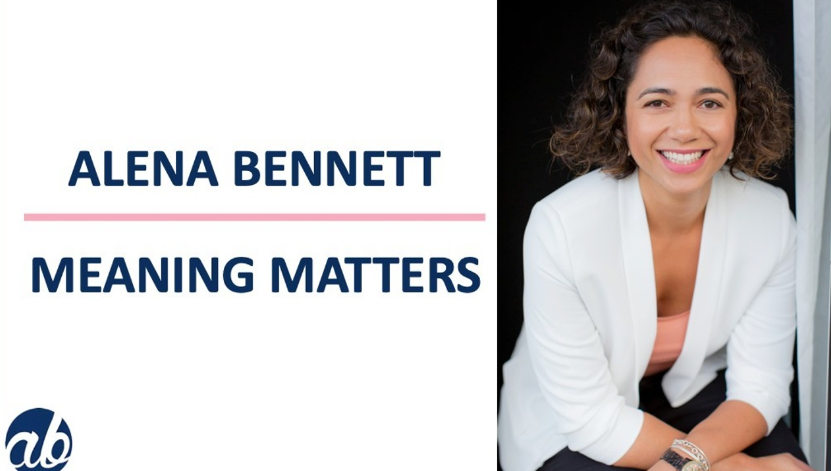I asked last week if you were doing "CFO thinking". That is: deep, broad and future thinking. I'd like to throw a rock at it (a bit) and ask: if CFOs know this is the thinking they should be doing, then why do they struggle so hard to get and stay in this space?
I talked about time last week as the major impediment to CFOs having the space to do this style of thinking: the thinking of CFOs of Influence. But there is another one: cognitive strain.
It would be remiss of anyone to discuss the skill of thinking without reference to the great work of Daniel Kahneman in his bestselling work, Thinking Fast and Slow. One of the key takeaways is that there are 2 types of thinking: System 1 thinking and System 2 thinking.
While Kahnemen describes system 1 thinking in a great level of detail, his association with the term 'cognitive ease' sums it up for me and likewise his characterisation of system 2 thinking as generating 'cognitive strain' equally gives me an almost physiological response. System 1 = easy, system 2 = hard.
Now, if I were to ask you if you want to be able to reach decisions faster or slower, in most instances you'll say faster. Meet the deadline, get the 'to-do' off your plate so you can get to the next one. Am I right?
Of course.
What is easy for you might be hard for me
This is where it becomes complicated. Most CFOs have logged hundreds of hours being formally trained in the detail. Then on the job, working up through the ranks again focused on the bottoms up, in the detail. Our ability to 'think big', to genuinely consider the 'why', the 'what else' and the 'what next' and to think strategically has largely depended on the ability of our managers' ability to teach us on the job and on the opportunity we have been provided in our respective roles. This varies significantly for CFOs.
What does this mean?
Some CFOs find detailed work easy - the comfort zone - where they go into flow. With reference to last week's article, this is the deep thinking. For these CFOs this is system 1 thinking. Where they can turn their brain into autopilot and just do. A bit like when you look at a set of financial statements and start to check that it adds, that the face statements tie to the notes, and that the cash flow works. In this state, these CFOs are in cognitive ease.
On the other hand, other CFOs find the broad and future thinking easy - it lights them up and energises them. Any time spent into the detail is incredibly strenuous.
How to apply system 1 and 2 thinking to transformative thinking
We know that as CFOs we need to be across the detail and be able to do the big thinking. This is not an insignificant ask. When we add the fact that we each have a preference as to the type of thinking that puts us at cognitive ease, it can be challenging to determine hard and fast rules to apply.
Thinking sits on a spectrum and the key is to know how to navigate that spectrum over the course of our days and weeks. That too much system 1 thinking might become boring and unfulfilling and an excess of system 2 thinking gives us the prolonged stress that many CFOs are all too familiar with.
Asking this simple question might help: what can I do to make this easier on my brain?
Here are some ideas:
• automate what you can. If you prefer the big thinking, create a report to generate the analysis you need so you don't need to 'do' it yourself.
• delegate as much as possible. Understand whether you like the detail or the big thinking and see how you can create growth opportunities for your team by getting them to step in and complement your thinking. This is at the core of diverse thinking which has been proven time and time again to deliver optimal outcomes.
• regulate the timing of your thinking. In his book, When: The Scientific Secrets of Perfect Timing, Daniel Pink explores, in detail, the impact on time and timing on the quality of our attention and decision making. Understand your optimum timing and be intentional with your calendar management: a must if you want to optimise your thinking.
• meditate: consider the ways you can improve the health of your mind. It's been a tough 12 months and the widespread impacts of the pandemic increased the cognitive load by 29 - 52% in the period between February and August last year. Many CFOs have started the practice of meditation to help them obtain peak performance and prevent burnout.
Thinking fast and slow, deep or big. They both have its place. The challenge for CFOs is that they're expected to do it all.
A big ask you might say, but I know you're up to it. Just takes some purposeful action to stimulate optimal thought. Without this, CFOs will remain under cognitive strain.
What is your cognitive preference?
What will you do to incorporate a good balance of system 1 and 2 thinking into your day?


